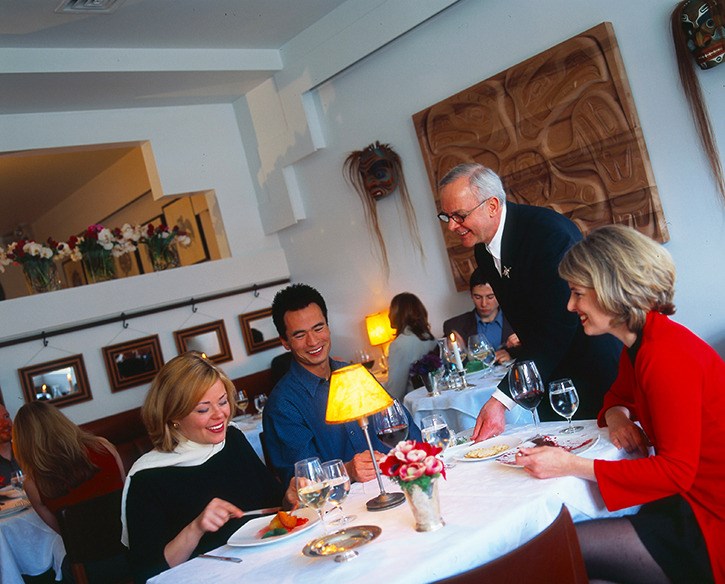When Cathy Whims opened Nostrana restaurant in Portland in 2005, it took me a while to understand why we werent making people happy.
As a chef, she wondered if it was her food. But, no, it couldnt be that people were raving about her dishes.
And then, like other independent restaurant owners in the food-centric Oregon city, she came upon an important realization: The level of food was really high but the level of service wasnt. There was a lack of attention to service and a disrespect to formality.
Today, the five-time James Beard finalist says diners have to have ESP experience, service and product if the restaurant is going to be a success. If they dont have the first two, it doesnt matter how good the food is. If the server is proud of the food, it is a real game changer.
Sitting next to Whims at a panel discussion called The Future of Fine Dining at the Distinguished Restaurants of North America conference, hosted this year by Cioppinos Pino Posteraro at the Wall Centre, was Holly Smith, the chef/owner of Café Juanita in Kirkland, WA.
As a chef, she said, nodding her head in agreement to Whims comments, it kills me to say that if service isnt good, they wont come back.
One of the conference goers said, If your water glass is not filled, or you need to wave three times to get service, it ruins the experience. Theres no front of house or back of house. Theres one house.
Its all about the importance of the table, said John Bishop, one of the first chefs to introduce fine dining to Vancouver. The table is the centre. Even if people are having a not-so-great day, the role the restaurant can play is so powerful.
Visitors to Vancouver, he says, are blown away by the hospitality, the freshness of ingredients, the regionality of approach.
Theres also a generational revolution going on. Some young diners get frightened off by the old notions of fine dining, worried they wont know what fork to use or why there are eight wine glasses on the table. Others simply reject white tablecloths or silver domes as standards of excellence.
As informality enters our culture, people want to feel relaxed, Whims added. But being relaxed does not mean turning the server/diner relationship into a friendship. Bishop, who feels slightly out of step with this trend, recalled an experience where the waiter shook his hand and said, My name is Jack.
My waiters were known as princes in exile, he said of the standards he set at Bishops. Service has changed so much. Let me say Im getting old.
Posteraro obviously felt out of step with the notion of more relaxed levels of service. He bristled at the thought of lowering classic fine dining standards but he believes the pendulum will swing back.
David Hawksworth worked at Michelin-star restaurants in London before he opened Hawksworth to immediate acclaim. Todays diners are sophisticated in their tastes and knowledgeable about their food. Although he balks at the idea of trying to introduce a Michelin-star restaurant in Vancouver, where even fine dining can be tricky, he believes that the pendulum will swing back from casual dining. People will get fatigued with that and theyll want something else. The future of fine dining is secure.
Bishops advice? Stick to your knitting but be mindful of the changes that are taking place.



